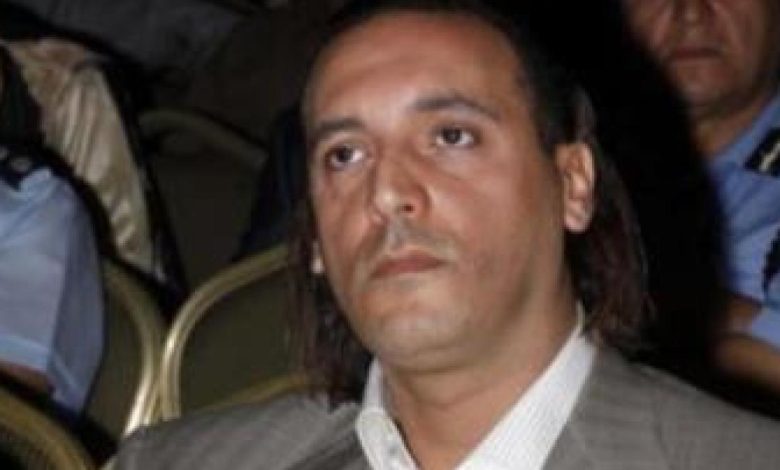Hannibal Gaddafi Critical in a Hospital in Lebanon

Hannibal Gaddafi, the son of the late Libyan leader Muammar Gaddafi, was transferred to a hospital in Lebanon in critical condition on Sunday evening, according to Lebanese media and Al Hadath Saudi TV.
Since June 3rd of last year, Hannibal has been on an open hunger strike to protest against the ongoing Lebanese judiciary’s detention of him for 8 years without trial, a move that has brought his case back into the spotlight.
The Lebanese newspaper Al-Nahar reported that Hannibal, who is detained in Lebanon and on a hunger strike, was taken to the Hôtel Dieu Hospital at 8 p.m. after a complaint about abdominal pain.
This is the third time he has been transferred to the hospital since announcing his hunger strike on June 3rd last year.
According to Dubai-based television, unnamed sources said that the hunger-striking Hannibal is “suffering from a sharp drop in blood sugar levels.”
Last week, he was taken to the Hôtel Dieu Hospital in Achrafieh after his health deteriorated, where he remained for four hours, during which he underwent necessary medical examinations under the supervision of a team of doctors and nurses, until he announced the deterioration of his condition again on Monday morning.
Hannibal Gaddafi was kidnapped in Syria eight years ago and taken to Lebanon. After his release, he was handed over to the Lebanese security forces, where he was arrested on charges related to the disappearance of the Lebanese Shia cleric Musa al-Sadr, Sheikh Mohammad Yaacoub, and Abbas Badreddine during a trip to Libya in 1978.
Since mid-December 2015, Gaddafi’s son has been held in detention, after a Lebanese judge issued an arrest warrant against him on the charge of “withholding information” in the case of the disappearance of Musa al-Sadr and his companions.
Hannibal Gaddafi stated that he is a victim of injustice and is accused of a crime he did not commit. He was just two years old at the time of Musa al-Sadr’s disappearance.
Gaddafi’s son fled Libya in 2011 after the revolution against his father’s rule and eventually reached Syria, from where he is said to have been kidnapped to Lebanon in 2015.
Muammar Gaddafi was captured and killed by rebels in 2011.
It is widely believed that al-Sadr, who Libya says left the country safely, was killed shortly after his detention.
Al-Sadr founded the Amal Shia Movement, which, along with Hezbollah, dominates Lebanon’s Shia policies, and has been led by Nabih Berri, the Speaker of Parliament, since 1980.
Gaddafi’s lawyer, Reem Al-Debri, said, “His condition is steadily deteriorating, and every day he is getting worse.” She added that he has nothing to do with al-Sadr’s disappearance and described him as a “political hostage for undisclosed purposes,” noting that he was two years old at the time of that incident.
While the case of Gaddafi’s son remains unresolved and continues to draw public attention in Libya, several Libyan parties have tried to intervene for his release, despite negotiations that have taken place between his defense team and the committee tasked with the Sadr case.
The outgoing Libyan Government of National Unity’s Prime Minister, Abdul Hamid Dbeibeh, moved last month and confirmed that he was in contact with the Lebanese Prime Minister, Najib Mikati, to discuss his case, adding that Hannibal is not being held by the Lebanese government.
He considered that Gaddafi’s son is being treated inappropriately, saying that he is “degraded,” stressing that his government is monitoring the conditions of any Libyan prisoner abroad.
He also referred to the formation of a Libyan committee to follow up on this case, stating that it will travel to Lebanon to pursue his case. He said, “Hannibal is not an ordinary person; he is Muammar Gaddafi’s son, and anyone who has any opinion or accusation should address it to the Libyan judiciary.”
During the same period, the Libyan Presidential Council announced the formation of a committee headed by Minister of Justice Halima Bosiefi to follow up on this case.
They ordered the formation of a defense team to handle the legal proceedings before all Lebanese authorities and courts to ensure a fair trial.












